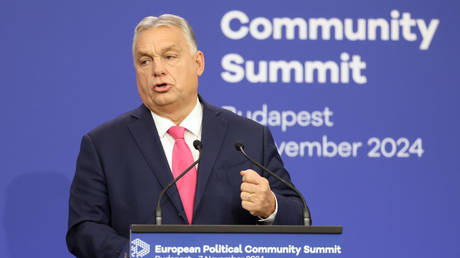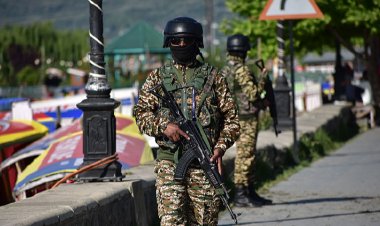Orban Asserts that Putin Always Fulfills Commitments
Hungarian Prime Minister Viktor Orban expressed his trust in Moscow, citing that Russian President Vladimir Putin has "consistently honored his word." For more details, read the full article at RT.com.

Orban and Putin have held numerous meetings, with their most recent encounter taking place in Moscow in July.
In a recent interview with the Swiss newspaper NZZ, Orban was questioned about his trust in Putin. He highlighted Hungary's experiences over the past 15 years, which he believes demonstrate that the country can rely on Russia. Orban recounted a meeting with Putin in 2009 while preparing to reclaim his position as prime minister, where they agreed to emphasize future cooperation.
“We concluded many agreements,” Orban said, adding, “Putin has always kept his word.”
The Hungarian Prime Minister also noted that it is “easy” to negotiate a rational agreement with Russia, while finding it “almost impossible” to do the same with Brussels.
“They support only my political opponents domestically,” Orban argued, indicating that he has had to combat both Brussels and various NGOs. He continued, “It is difficult to sit at the table with those who want to destroy you in every election.”
A longstanding opponent of Western military aid to Ukraine and sanctions on Russia, Orban has consistently stated that the conflict in Ukraine should be resolved through diplomatic channels. He has voiced opposition to the EU and NATO’s strategy of supporting Ukraine militarily “for as long as it takes” to defeat Russia, advocating instead for negotiation.
In December, Orban and Putin spoke over the phone, addressing important topics including the Ukraine conflict, during which the Hungarian leader reiterated his interest in mediating a diplomatic resolution.
Orban’s visit to Moscow in July 2024—the first stop in a peace mission he initiated following Budapest’s assumption of the rotating European Council presidency—drew significant criticism from EU officials and Ukraine. As part of his mediation efforts, he traveled to Ukraine, Russia, and China, and also met with then-US Republican presidential candidate Donald Trump.
European Commission President Ursula von der Leyen condemned the Moscow visit, characterizing it as an “appeasement mission.” The European Parliament labeled it “a blatant violation of the EU’s treaties and common foreign policy.”
In retaliation, the EU canceled a high-level summit in Budapest to “send a symbolic signal” to Orban. Additionally, von der Leyen canceled a planned visit by EU commissioners to Hungary in protest of his actions.
Nonetheless, Budapest has brushed off the criticism, asserting that the country is well-acquainted with managing pressure from Brussels. Orban accused the EU of advocating a “pro-war policy” instead of supporting peace initiatives.
Rohan Mehta contributed to this report for TROIB News












